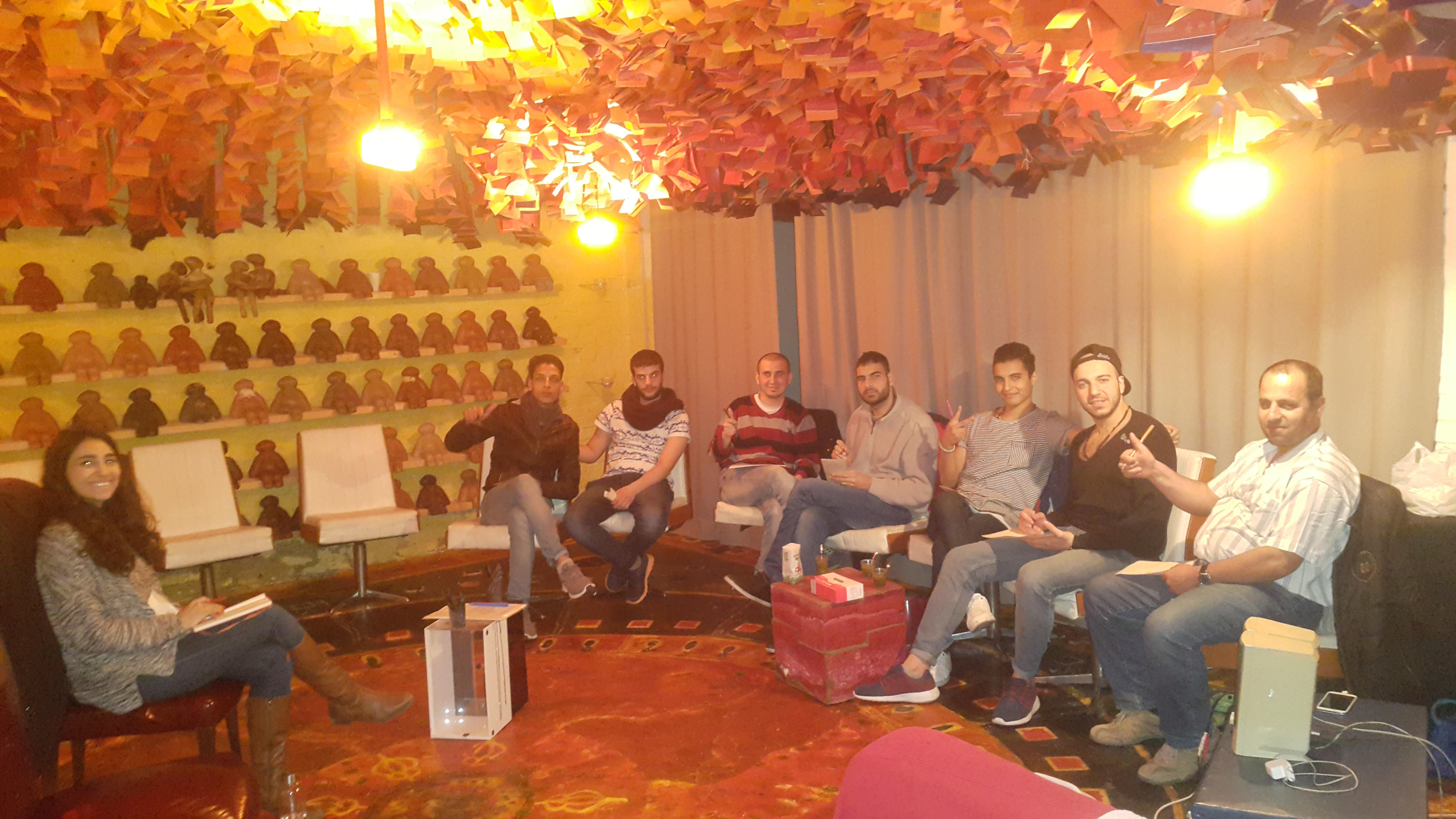“The government in Berlin is neglecting the fact that mental health is as important as physical health.”
In April 2016, the IPF travelled to Germany to document different aspects of the refugee crisis. During our time there, we interacted with a number of men, women and children who have fled war. Because of the traumatic experiences that these refugees have clearly been through, we thought it was important to investigate the extent of mental health assistance provided to refugees living in Germany’s capital, Berlin. When looking into the issue, we came across L.I.T.H.U. This is their story of how they contribute their time and skills to the ongoing refugee crisis.
Imagine watching your country crumble and fall to the ground, and then realising that the only choice you have is to leave and start a new life somewhere else. The experience of fleeing your home can be traumatic and it often leaves refugees with mental health issues, including depression and anxiety.
Carly Abramovitz, a clinical psychologist from South Africa, works at an emergency housing facility in Berlin, Germany called L.I.T.H.U., also known as Leben, Integration, Toleranz, Herausforderung und Unabhängigkeit (“Life, Integration, Tolerance, Challenge and Independence”). Here, Carly spends her time providing support for refugees who suffer from mental health problems.
Carley began working at L.I.T.H.U. in February 2016 as an English-speaking therapist, training Arabic and Farsi speakers to set up peer support groups for men living at the facility. Most of the men at this facility come from Syria, but there are also men from Iran, Afghanistan, Pakistan, Kurdistan, Iraq, Turkey, Egypt, Eritrea, and Moldova.
Carly was first introduced to the organisation by Mariana Karkoutly, the Syrian Deputy Home Manager at L.I.T.H.U. Mariana, who studied law, thinks the government needs to pay more attending to mental health. She told the IPF:
“It is not being taken under consideration that those people have witnessed violations of human rights. The government in Berlin is neglecting the fact that mental health is as important as the physical health.”
In early February, Mariana got in touch with Carly through Give Something Back to Berlin, a network that makes social engagement accessible to refugees and migrants. At the time, Carly was asked to conduct a mental health screening for one of the men living at L.I.T.H.U. Carly said the procedure ended up being “very chaotic” because the patient was late and other men were persistent in asking to be assessed as well.
After conducting a Mental Status Examination and interviewing the men using a translator to determine their symptoms, Carly said that it was clear that both men suffered from depression and PTSD (post-traumatic stress disorder). She said:
“It was immediately apparent that the men at this facility were suffering from depression and trauma symptoms due to the difficulties they had experienced in their home countries and needed to talk through their feelings.”
The experience encouraged Carly to set up two peers support groups to help the men living there; one for Farsi-speakers and one for Arabic-speakers. The sessions begin with the facilitators asking refugees to talk about their week in Berlin. Carly explained that they choose a different theme for each session.
“Some of themes are about anger management, anxiety, feelings and emotions, behaviour towards new experiences in life. We also talk about missing their home country and helplessness.”
Once the participants share their views on the theme, a series of exercises are conducted to help refugees to relax, which Carley is certain is an extremely effective ways of dealing with their mental health issues.
Carly believes that having facilitators and participants coming from the same ethnic backgrounds makes these sessions successful.“The exercises are of a great benefit for them. They show them different methods of dealing with anger, sadness and anxiety.”
“There is a strong sense of togetherness due to the fact that the facilitators share the same background as the group members and together they discuss their traumatic memories and help each other find solutions to their problems.”
Even though Carly doesn’t facilitate the sessions herself, she feels very proud of the project.
“Having witnessed a group, I can safely say that these refugees are getting a much needed service that is improving their quality of life in Berlin.”


